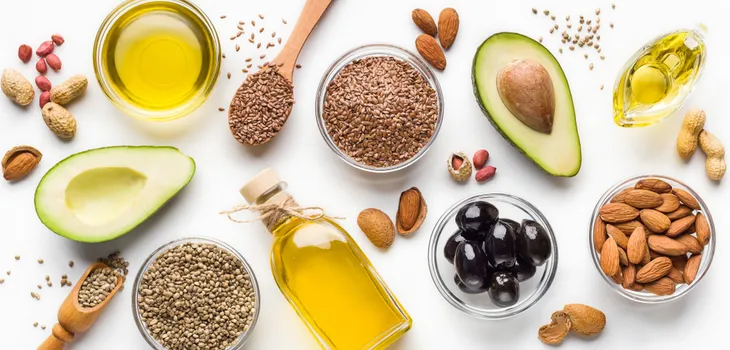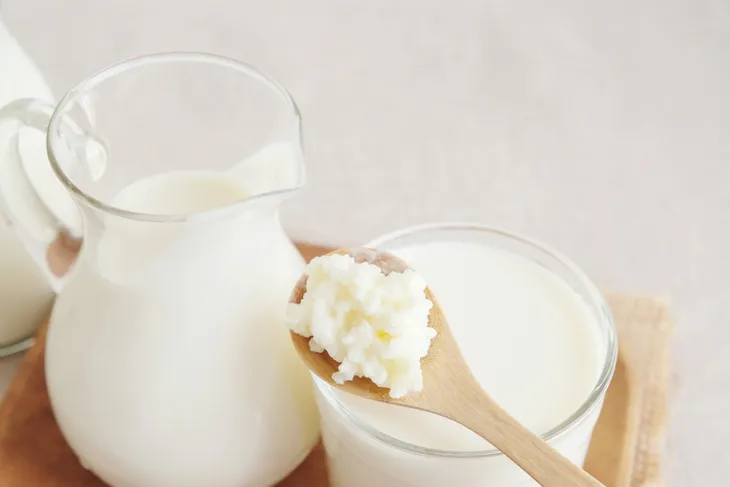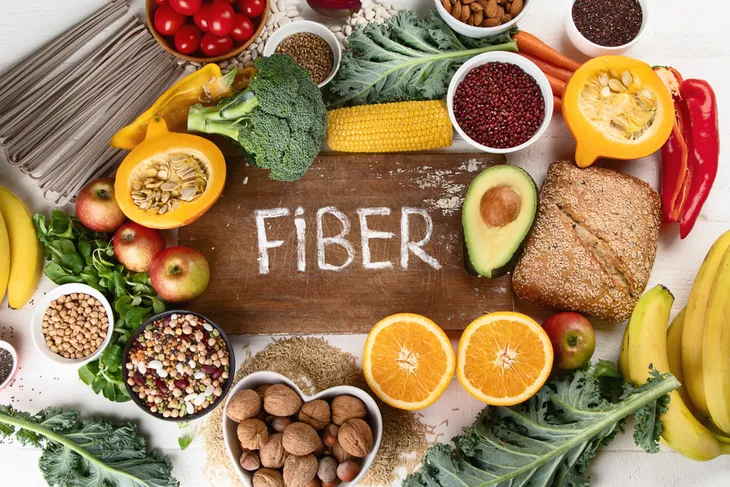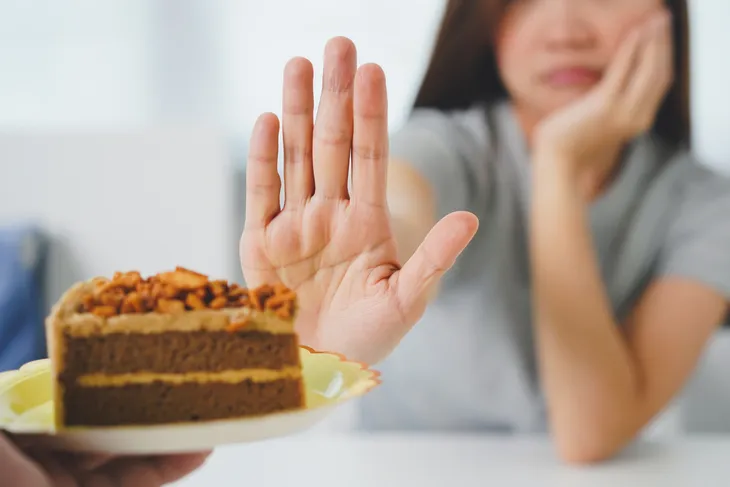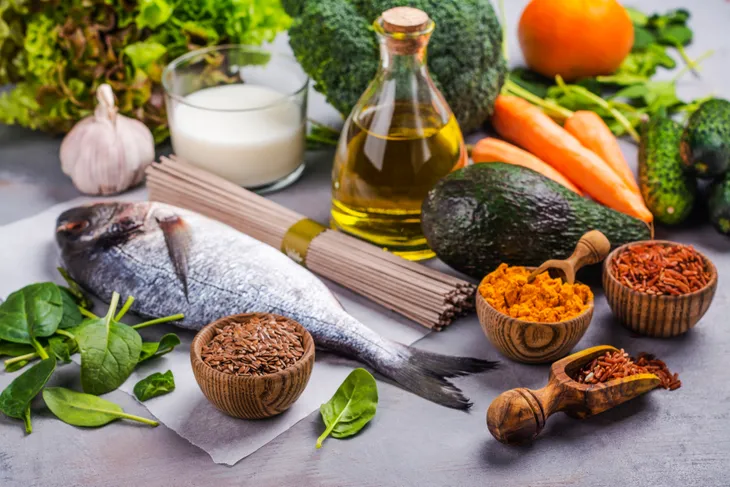Polycystic ovary syndrome (PCOS) is a common medical condition that affects 1 out of 10 women of childbearing age, reports the Office on Women’s Health. The condition causes hormone imbalances and metabolism problems. PCOS is also a treatable cause of infertility. When a woman suffers from PCOS, during ovulation the egg does not form properly or is not released normally. Resulting in irregular or missed periods. This can cause infertility and ovarian cysts.
One of the treatments for PCOS is changing your diet. The changes are focused on weight loss and managing the hormone that regulates glucose in the body. Losing weight will lower blood glucose levels, which will improve how your body uses that hormone. In this article, we’ll cover the diet for PCOS. We will also talk about how exercise and working with healthcare professionals can get your hormone levels back to their normal state to keep you healthy long term.
Cut Down on Carbohydrates
The PCOS hormonal imbalances can cause some nasty effects like abnormal hair growth, weight gain, infertility, and acne. According to Healthline “Approximately 70% of women with PCOS have resistance [to the hormone that regulates glucose in the body], which is when your cells stop recognizing the effects of the hormone.” If you lower your carbohydrate intake you will be lowering the impact of carbs on your hormone levels.
The worst carbohydrates are those with a high glycemic index (GI) like white bread, potatoes, fries, and white rice. The GI is a measurement of how quickly foods raise your blood sugar.
Foods with a low GI are digested slower, which helps prevent your levels from rising too quickly. These foods are oatmeal, apples, beans, whole-wheat pasta, and non-starchy vegetables. High levels of the hormone that regulates glucose in the body are associated with an increase in body fat and weight gain. So cut those carbs to lose weight and improve PCOS!
Eat More Protein
Protein is one of those perfect foods–it creates a feeling of fullness after eating and stabilizes your blood sugar. Healthline explains one study showed that women who ate a high protein diet lost much more weight than the control group.
When most people think of protein they think of meat. Meat is a great source of protein but eggs, dairy, nuts, and seafood are all excellent forms of protein as well. If you are getting tired of eating the same protein sources day after day try using protein powders in a smoothie or shake. Keeping your diet new and varied will avoid boredom which can lead to eating things that are not good for you.
Stick With Healthy Fats
It might seem contradictory but eating fat can help you lose weight. It just needs to be the right kind of fat. Healthy fats like avocados, nut butter, olive oil, and coconut oil can cause you to feel full after a meal resulting in eating less. It works similarly to how protein causes satiety. Avoid eating fried foods, high-fat dairy, and other similar fatty foods that will only pack on the pounds.
When you are planning your meals, one trick is to eat the rainbow. The idea of the rainbow is to encourage you to eat a wide variety of foods, all different colors. A green salad with blueberries and strawberries makes a great lunch. Oranges and bananas are perfect snacks. Over time it’ll become second nature to eat healthily and the rainbow can get you started in the right direction.
Try Fermented Foods
Fermented foods have become quite popular in recent years and the popularity isn’t unfounded. Fermented foods like yogurt, sauerkraut, and kefir contain healthy bacteria called probiotics. These probiotics have been found to play an important role in our gut health, immune system, and more.
Women with “PCOS may have fewer healthy gut bacteria than women without this condition” reports Healthline. With new research showing that some probiotics influence weight loss, it might be time to give them serious consideration.
As we discussed, fermented foods contain these good bacteria but that is not your only source of probiotics. There are supplements found at many stores that also contain probiotics. If you do choose to take a probiotic supplement read your labels to ensure you are getting a supplement with live microorganisms to gain the greatest benefits. Adding these foods or supplements to your PCOS diet can help you lose weight and fight the symptoms of this condition.
Consume High Fiber Foods
Women with PCOS are often guided toward foods that promote weight loss. According to Very Well Health, “Studies have shown that even modest weight loss in people with PCOS can improve symptoms and reduce the risk of other health problems.” High fiber foods are great for weight loss. This is because fiber keeps you full and may prevent you from overeating.
Adding extra fiber to each meal is easy too. At breakfast, choose a high-fiber cereal or oatmeal. For lunch and dinner add in vegetables, legumes, fruits, nuts, and seeds. The roughage or bulk as some people call fiber, aids in digestion and has been shown not only to help with weight loss but to also provide protection against cardiovascular disease, type 2 diabetes, and colon cancer, explains the National Institute for Health.
Avoid Sugar and Processed Foods
Everyone should limit their sugar and processed food intake but women with PCOS need to be extra diligent about their consumption. “Research shows that women with PCOS experience larger spikes in blood sugar…after consuming the same amount of sugar as women without this condition,” says Healthline.
Staying away from sugary treats, white bread, and fast food is hard. There is no arguing that. It will take dedication and focus to adjust your eating habits. Start by substituting fruit for desserts. It will give you the sweetness but with all the added nutrition as well.
Another trick is to meal plan every week. If you know what you are having for each meal and have the groceries to make it then you will be less likely to fall off the wagon and eat unhealthy foods.
Focus on Anti-Inflammatory Foods
Inflammation is your body’s way of fighting off an infection. But when your body is in a state of chronic inflammation that’s when things can go wrong. Women with PCOS can have chronic inflammation, which is associated with obesity. One of the ways women can combat this is through eating anti-inflammatory foods.
The Mediterranean diet is naturally anti-inflammatory. It encourages people to eat whole grains, vegetables, fruits, and fish. All healthy foods promote a healthy lifestyle. If you eat real, whole foods and stay away from processed, prepackaged foods then you are eating an anti-inflammatory diet.
Work With a Registered Dietitian
Changing your diet while managing a chronic condition is no easy task. You will find that different resources suggest different foods and quantities. The problem is there is no one right way that works for everyone and that’s where working with a registered dietitian can help. They will evaluate your current diet and state of health to come up with a plan that is customized for you.
Your first step in finding a dietitian will likely be reaching out to your doctor. They can refer you to someone that specializes in PCOS. Having someone who is on your side, focusing solely on your diet can really make the difference if you struggle with food.
Exercise
Well, exercise isn’t exactly food but it can help you manage the symptoms of PCOS. “Both cardio and weight-training exercises may help women with PCOS drop body fat and improve [hormone] sensitivity,” says Healthline.
According to the Office on Women’s Health, “Even a 10% loss in body weight (for example, a 150-pound woman losing 15 pounds) can help make your menstrual cycle more regular and improve your chances of getting pregnant.”
Exercise doesn’t mean you need to start running marathons (unless you want to!). Start slowly with walking. Moving, even for 20 or 30 minutes a day will make a difference. If you need more support, join a gym that offers help from a trainer. Having accountability will encourage you to show up and give it your all.
Lower Stress Levels
Stress and weight gain go hand in hand. Lowering your stress levels can help you lose weight. “Stress increases levels of cortisol, a hormone made by your adrenal glands. Chronically high cortisol levels are linked to [hormone] resistance and weight gain” reports Healthline. More fat, specifically belly fat, will increase the inflammation in your body. This creates a cycle of inflammation and weight gain.
If you have PCOS work on managing your stress through yoga, meditation, and other mindfulness activities. With life moving so fast it’s hard to slow down and turn the attention to yourself but it is critical to do so if you want to lower your stress. Make time every day for a moment of reflection to evaluate where your stress levels are.
Talk to Your Doctor
Our last suggestion for PCOS, but perhaps the most important, is to keep in touch with your doctor. As your hormone levels change, so will your health. Your doctor will be able to constantly evaluate where you are and what specific changes to your diet, lifestyle, and medications can improve your symptoms.
You don’t need to go through PCOS alone. Reach out to PCOS support groups to find other women who are going through the same thing as you. Your doctor or a social worker can help you find women who understand your challenges and can celebrate your wins.



